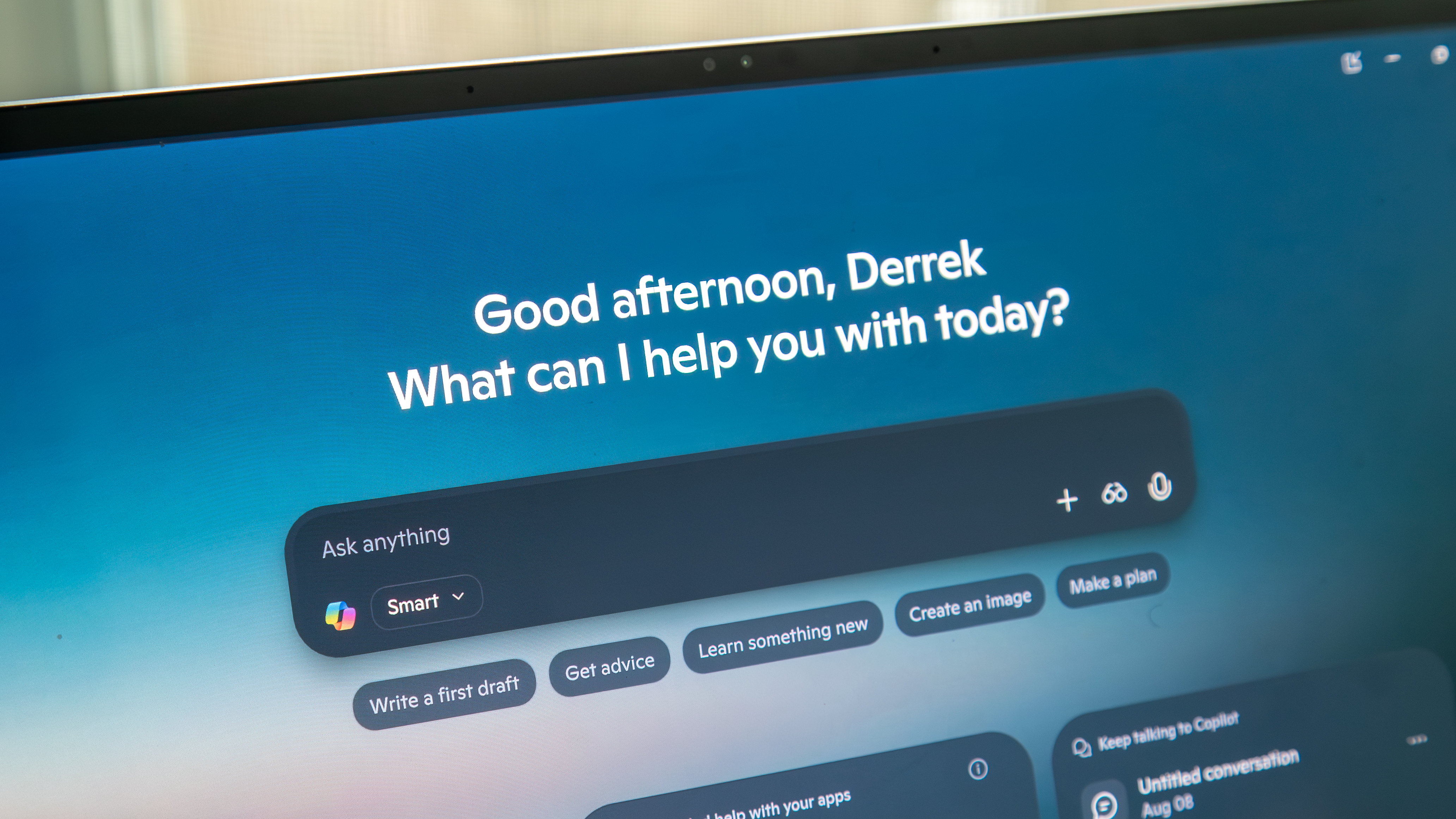The best of Android Central 2020, according to the staff
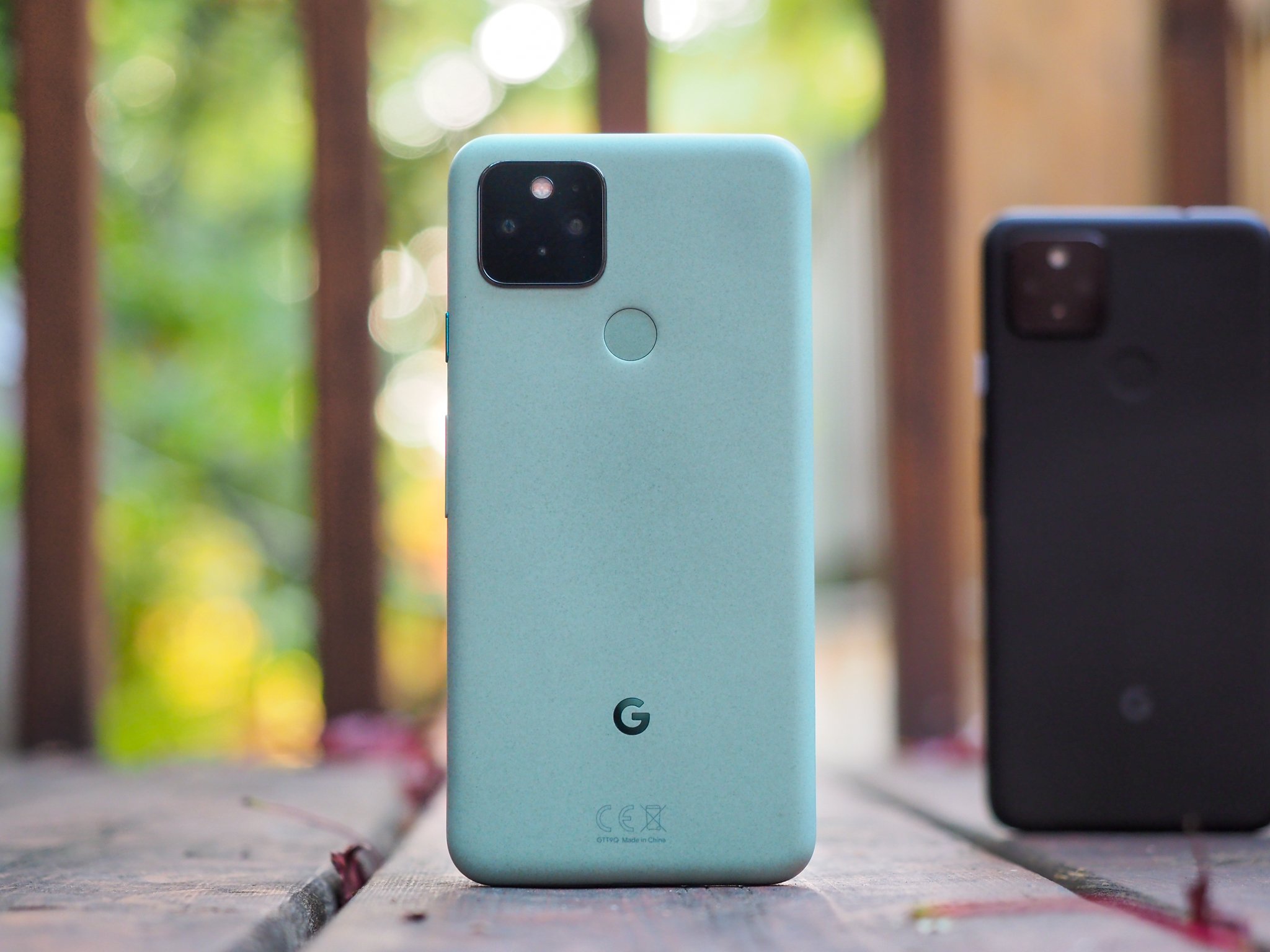
Get the latest news from Android Central, your trusted companion in the world of Android
You are now subscribed
Your newsletter sign-up was successful
I like to think that we here at Android Central have some of the coolest jobs there are to be had. Each of us gets to write about our own niche of tech, getting first-hand looks and inside perspectives at the gadgets and technologies we're passionate about. Even amidst a global pandemic, we've all been able to do our jobs from the comfort and safety of our homes, a privilege that I try to never take for granted.
For as rough as many of the other aspects of 2020 have been, it's been a pretty great year for many of the fields we cover, from the best Android phones and tablets to game consoles, drones, and countless other platforms. We've written on all of it, and for both our own indulgement and to help you discover new content (mostly the latter, I promise), I thought it'd be fun to ask the team to round up some of this year's articles we're most proud of.

Alex Dobie Executive Editor, Global
An almost decade-long veteran of AC, Alex is usually found in the UK — even more so than usual this past ten months. He has been blogging since before it was called that and spends most of his time leading video for Android Central on YouTube and beyond, which involves pointing a camera at shiny things and speaking words at a microphone. When all this is over, maybe he'll get back to posting airplane window shots on Instagram.
Behind the Buds: The past, present and future of headphones with Qualcomm
The past year has seen an explosion of good, cheap true wireless headphones into the market. A major force in making that happen has been Qualcomm, the company behind the processors in most Android smartphones, and a firm that inherited a rich history in audio when it acquired CSR back in 2015.
Earlier this year I sat down (virtually, of course) with Qualcomm Senior Product Marketing Manager Guy Gampell to discuss the company's rise in the wireless audio space, the technology behind the wireless earbud boom, and where the technology is going next — aside from just longer battery life and better noise cancellation.
Get the latest news from Android Central, your trusted companion in the world of Android
Having joined Qualcomm from CSR, Gampell has a unique perspective on how this category of headphone has developed over the past five years, and it was fascinating to interview him for AC.
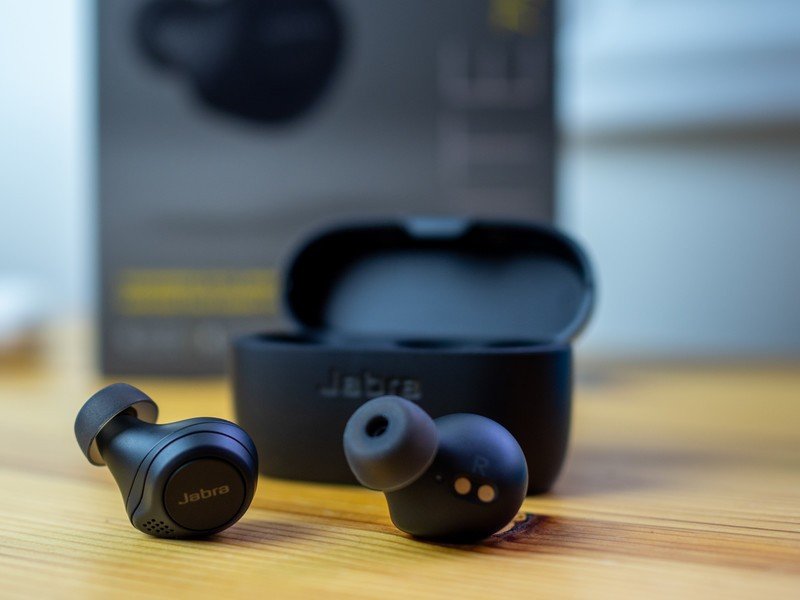
Who to root for in the Epic/Apple/Google slap-fight
One of the biggest bust-ups in mobile this year was the three-way legal fight between Epic Games, Apple and Google over app store revenues. Epic wanted a bigger slice of the lucrative in-app purchase pie, and goaded Apple into pulling Fortnite from the App Store as a pretext to filing suit. And in doing so, the Fortnite maker shone light on what many other developers believed was the unfair 30% cut demanded by both platform holders, as well as the duopoly of the App Store and Google Play.
In this editorial, I attempted to cut through some of the spin and explain why none of these multi billion/trillion-dollar companies are in fact your friends, however much you like their products. While this legal kerfuffle did result in Apple capitulating and lowering service fees for smaller devs — a very good thing for smaller software houses — the general thrust of Epic vs. Apple vs. Google had little to do with this. Really, this was just about three corporations with big piles of cash wanting a slightly bigger pile of cash.
I also break down how things could change in the mobile app space should Epic win its ultimate prize and force Apple and Google to offer full support for third-party app stores. (Spoiler: Things could get pretty wild.)

Andrew Myrick Freelance Contributor
Andrew is a freelance writer at Android Central. He enjoys everything to do with technology, including tablets, smartphones, and everything in between. Perhaps his favorite past-time is collecting different headphones, even if they all end up in the same drawer. You can follow him on Twitter @andymyrick for some random tech takes, but more sports and Star Wars memes.
Best Android Apps 2020
It's next to impossible to try and find, let alone download, every app that's available on the Play Store. Some are still available despite not being updated for years, while others are updated on a seemingly daily basis. Then, you have to worry about the term "the best", as it's very subjective to say that one app is better than the other. However, spending countless hours trying to find the "best of the best" has been the biggest project of my writing career, and one that was certainly the most gratifying.
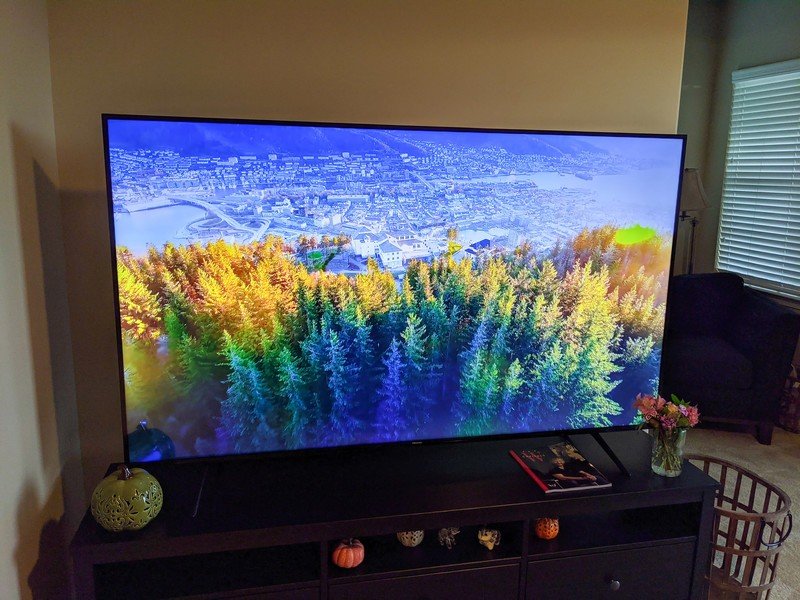
Hisense H65 series TV review: A cheap 75-inch Android TV that's almost perfect
It's not often that we get the chance to review a television, even one that's powered by Android TV. But the Hisense H65 review marked a few firsts for me. It was the first time reviewing a TV, along with being my first foray into the Android TV ecosystem. After the review, the H65 continues to be the TV to grace my living room setup, and Android TV is much more powerful and useful than I ever expected it to be. Even though the H65 isn't the "latest or greatest", it offers a fantastic value, and I mean, who doesn't love having a 75-inch TV to watch The Mandalorian.

Ara Wagoner Staff Writer
Born and raised in Austin, Texas, Ara dove into Android in 2011 and has been theming launchers and poking entertainment apps with a stick. When she's not writing about cases and Chromebooks, Ara tests her tech at Walt Disney World and bakes bread and pumpkin seeds depending on the season. If you see her without headphones, RUN.
The best Chromebooks money can buy
2020 was the year of the Chromebook, but even before there was an absolute run on the best work-from-home laptops in March when the lockdowns started and schools tried to switch to digital-only instruction, 2020 was already proving a sea change for the Chromebook market as we'd seen the debut of great Chromebooks both big and small at CES and during education trade shows in January: the debut of Project Athena Chromebooks like the ASUS Chromebook Flip C436 and Acer Chromebook Spin 713 were ushering in a new era of power and productivity while the compact champion Lenovo Chromebook Duet was finally making good on the promise of worthwhile Chrome OS tablet that the Pixel Slate never delivered on.
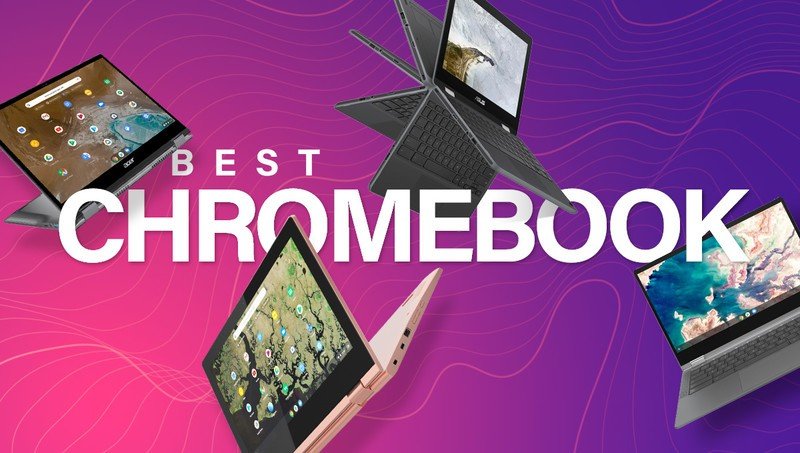
We had to completely redo this guide at least twice this year, in part because Chromebook supply has just been so unstable between the extreme demand and the manufacturing shortages exacerbated by expansions of the Entity List that sent manufacturers scrambling for new factories. In fact, I think the only Chromebooks on this list today that were on here a year ago were the Google Pixelbook Go, ASUS Chromebook Flip C434, and ASUS Chromebook Flip C214, which managed to hold off challengers in the Best Chromebooks for Students slot in what has been a truly ridiculous nine months for education-oriented Chromebooks.
I'm sure we'll see more hot new Chromebooks in 2021 — in particular, I'm looking forward to getting my hands on the new Lenovo ThinkPad Chromebook — but whatever crosses my desk for review, you can be sure that if it's worth it, it's going on Best Chromebooks ASAP.

Chris Wedel Freelance Contributor
Chris is a fan of all things tech and gadgets. Living in rural Kansas with his wife and two young boys makes finding ways to get and stay online tricky. By utilizing his years of experience with the tech and mobile communications industries — success is assured. When not conquering connectivity challenges and testing new gadgets, Chris enjoys cruising a gravel road in his UTV with some good tunes.
TicWatch Pro 3 GPS Review: A huge leap in performance
Of all of the smartwatches that I have used, and it's a bunch, the TicWatch Pro 3 is the first one that performs as expected. By that, I mean when I interact with it, the watch responds in time. There's no lag or jitters — it just goes. This buttery smooth performance is attributed to two things, 1GB RAM and the new Snapdragon 4100 processor — with the latter being the most significant contributor.
The TicWatch Pro 3 is the first watch to be released using the chipset and has done something for Google Assistant on Wear OS that no other watch had done before, making it useful. If you have used a Wear OS watch, you know that, even with 1GB RAM, the Google Assistant was a no-go. The performance tied in with the slimmed-down hardware over prior TicWatch Pro models, and the improved secondary display is what will keep the Pro 3 on my wrist for the foreseeable future.
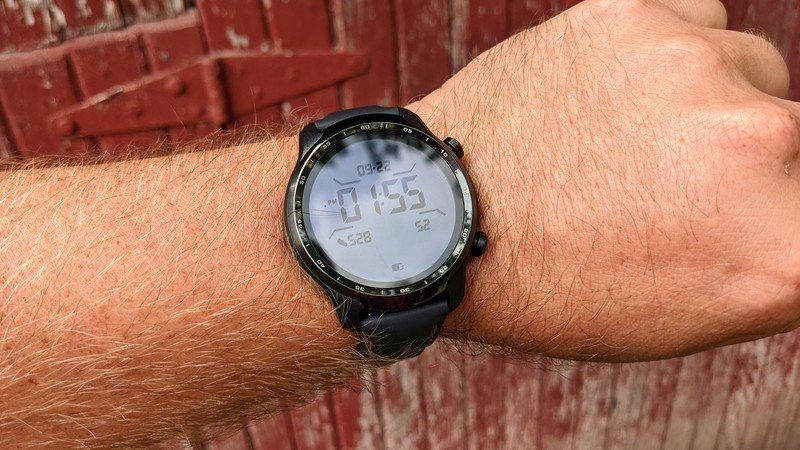
Tizen vs. Wear OS: Which is the better smartwatch OS?
Over the years, I have used smartwatches running all sorts of different operating systems. Some have gone away, and others have evolved into what we use today. The two big ones in the Android space are Wear OS from Google and Tizen from Samsung. Both of these are full-fledged smartwatch platforms that have apps and can do some pretty amazing things, but for utility, one stands out.
Firstly, neither of these two are perfect, but Wear OS has the most basic and essential staples for a smartwatch down — ease of use, apps, and notifications. While Samsung may have some of the most technically impressive watches, Tizen lacks in some key areas. Yes, there's an app store, but it is missing a lot of key apps. Tizen gets notifications, but the way the OS handles them is less than ideal, and the navigating through the software doesn't as closely mirror using a phone the way Wear OS does.
Wear OS can still use some of the finesse and pizzaz that Tizen has, but thankfully, we've seen indications of Google's continued commitment to improving its software. The platform is far less clunky when using it on the TicWatch Pro 3's Snapdragon 4100 processor. Plus, the app availability, along with proper notification integration and a more natural user interface, will keep Wear OS as my daily wearable platform.
Bartesian review: The perfect cocktail on demand
Sometimes a good cocktail is just the thing to cap off the perfect evening, or in the case of 2020, what's needed to get through most days. However, unless you have a fully stocked bar, are a bit of a mixologist, or willing to brave going to a bar in the current climate, that mixed drink is out of reach. This is where the Bartesian cocktail maker comes in to save the day.
My wife and I have really enjoyed having this machine around. The wide variety of drinks that it can make and the ability to customize the beverage are great. The Bartesian lets you use your preferred brand of liquor mixed into the natural flavors from the drink capsule. That and the fact that you get to adjust your drink's strength with the tap on the screen is excellent. So, I'll be raising a wonderfully mixed drink to 2020 and bidding the year adieu.

Harish Jonnalagadda Asia Editor
Harish is the Asia Editor of Android Central. A reformed hardware modder, he now spends his time writing about India's handset market. Previously, he used to ponder the meaning of life at IBM. Contact him on Twitter at @chunkynerd.
OnePlus retrospective: Looking back at all OnePlus phones over the last six years
I've been interested in OnePlus from the very beginning; I scoured the company's forums back in 2014 to score an invite to the OnePlus One, and was very impressed with what the phone had to offer. I started at AC at around the same time, and with the OnePlus 3 onward, I started reviewing OnePlus' phones.
So ahead of the launch of the OnePlus 8 series, I cataloged OnePlus' journey over the last six years. I realized that I had all 18 OnePlus phones released until 2020 — going all the way back to the OnePlus One — so I wrote a retrospective that highlighted the brand's growth from a nascent startup to a leading phone manufacturer. It took a lot of effort to put together and came in at just over 6,000 words, and I'm proud of how it turned out.
Continuing with OnePlus, I'm proud of our Nord coverage. I broke the details for the Nord N10 5G and Nord N100, and it took a significant amount of work to get the relevant information and corroborate it with a source. I broke over a half-dozen stories revolving around the Nord devices, 8T, and the upcoming OnePlus 9, and there's much more to come.
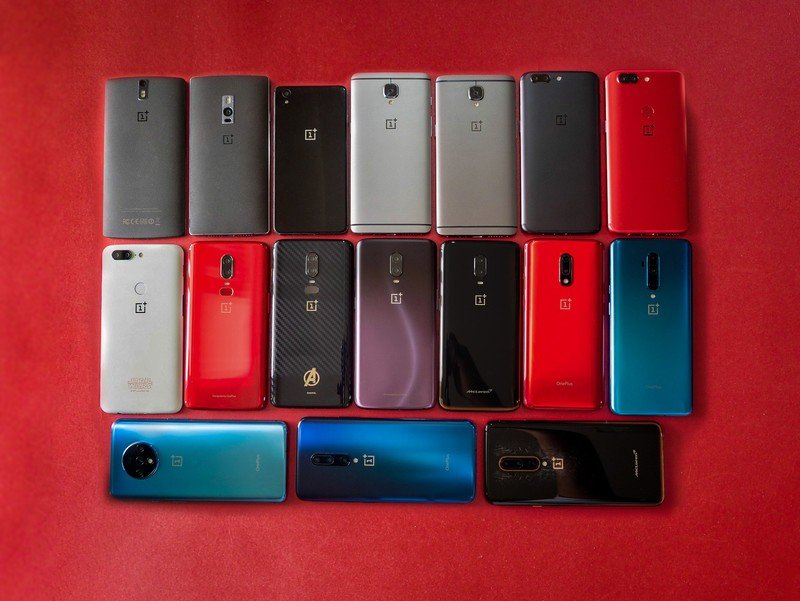
Xiaomi Mi 10 Pro review: Outstanding 108MP camera, annoying software
I'm based out of India, and that allows me to try out phones that don't normally show up in the U.S. or other Western markets. I ended up getting nearly a hundred phones for review in 2020 alone, and while there were plenty of great phones across categories, the one phone that stood out for me was the Xiaomi Mi 10 Pro.
Xiaomi always fielded strong value flagships, but in 2020 it changed course and released a high-end device to take on the Galaxy S20 series. The result is the Mi 10 Pro: the phone launched with the same 108MP sensor as the S20 Ultra and internal hardware that's in line with other Android flagships.
The Mi 10 Pro is one of my favorite phones of 2020; I used the device as my daily driver for well over two months, and the primary reason I continue to go back to the device is the software. Xiaomi made huge strides on the software front with MIUI 12, and while the Mi 10 Pro had software issues at launch, these were fixed a few weeks later.

Hayato Huseman Video Host
Hayato is a recovering trade show addict and video editor for Android Central based out of Indianapolis. He can mostly be found complaining about the cold and enthusing about prog metal on Twitter at @hayatohuseman.
Samsung Galaxy Z Fold 2 review: The future isn't flat
My favorite reviews to write are the ones for products I'm truly passionate about. Don't get me wrong, I still love phones in general, but when you have access to virtually every new device that hits the market, they all start to blend together until you run into something truly standout. For me, the Galaxy Z Fold 2 was that device; the original Fold had far too many compromises to recommend buying, but this foldable truly felt like a complete and finished product.
I'm really proud of both my written and video reviews for the Z Fold 2. I worked with my fiancee (a professional photographer) to get the best product shots possible, and tried to look at the Fold as not just a great standalone product, but a signifier for the true launching point of viable, consumer-ready foldables in general. Hopefully, I did as good a job as I think.
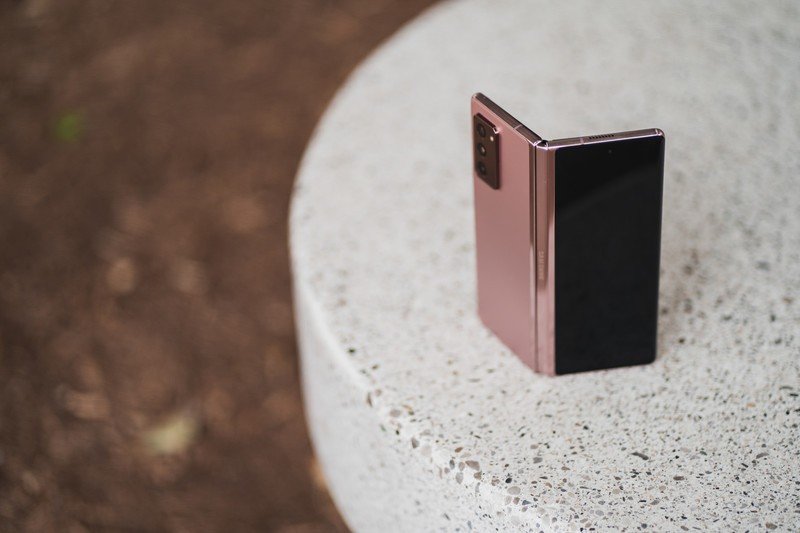
YouTubers discuss their favorite (and least favorite) headphones
This project was a months-long collaborative effort with a ton of behind-the-scenes work from the amazing team I get to work with every day. Over a dozen staff members ran interviews with other YouTubers and creators, asking about the various things they love and hate about headphones. Eventually, all of that interview footage made it to me — about 6.5 hours in total — and I cut it into what I think is a really fun watch.
Especially working from home without a physical office to see our coworkers in person, I really love doing collaborative work, so this was a blast from start to finish. For this video in particular, I took a ton of extra time to transcribe all of the dialogue so we could provide closed captions and make the video more accessible, something I'm really proud of and hope to keep up in the future.
Interviewing Qualcomm's Judd Heape on the future of mobile photography
The word "journalist" gets thrown around pretty freely in our industry, but I never quite feel qualified or compelled to give myself the title. "Reporter" or "videographer" or even "blogger," sure, but I don't have any background in traditional journalism, nor did I major in the field in college (or even finish college). With that being said, interviewing Qualcomm's senior director of product management was one of the first times I truly felt like a real journalist.
Judd and I had a great conversation discussing smartphone imaging as a general concept. How computational photography has fundamentally changed the kind of images we're able to capture with tiny phone sensors, and why those features are so much harder to bring to the video side. Interviews are something I'd love to do more of in the future, but Judd was a delight and made my first interview a great experience.

Nick Sutrich Freelance Contributor
Nick is a freelance writer and contributor to Android Central. He's been writing about tech since 2011 and loves robot vacuums, home automation, virtual reality, and any kind of gadget that's connected to the Internet. Find him on Twitter at @Gwanatu.
Oculus Quest 2 review
The original Oculus Quest was an incredible surprise success, but it wasn't something I was able to get ahold of until many months after the original release. This time around with the Oculus Quest 2, we were able to secure a review unit before the official release of the system and I absolutely poured my heart out into this review. From the imagery to diving deep into every possible function, I wanted this review to be the go-to review on the Internet. Likewise, I spent a lot of time directly comparing games available on Quest 1, Quest 2, and PC against each other to showcase the differences.
It was also important to me to point out how vital this product was for the future of VR. That, particularly in light of the concerns that were put forth about Facebook's deep integration into the headset and the ramifications those implementations might have on a user's experience. But I also wanted to recognize that, for most people, Facebook integration was likely a positive factor than a negative one. Instead of having to add usernames or re-establish contacts and get familiar with new tools, the Facebook integration takes something that's already a big part of many people's daily lives and brings it into the realm of VR.
With so many negative views about Facebook, I wanted to take the time to point out just how much time Facebook spent on R&D for what's going to ultimately become the most successful VR platform ever. Maybe the courts will force Facebook to reverse its decision of combining Oculus and Facebook accounts, but without Facebook's endless supply of money, we might never have a VR system as capable as the Quest 2 from any other company.

It's time smart homes stopped feeling so damn stupid
Smart home devices are pretty amazing — until you try to link them together, that is. Between general incompatibilities between competing products, difficulty getting products to do what you wanted in the first place, and things just not feeling very "smart" to begin with, the smart home as we know it just doesn't feel very intelligent.
My goal here was to explore what a smart home should look like, not just what we assume about a smart home based on current products and their poor integrations into our lives. My lights should know that I'm walking into the room and turn on or off depending on my proximity. My thermostat should understand how to actually save money by tweaking the operation of my HVAC components, not just turn the temperature up or down depending on whether I'm home or not. These gadgets should also understand each other in a way they do not right now, and that goes way beyond simply triggering actions based on specific scenarios.
It's quite a bit of fun to think beyond what we can currently achieve, whether that's just a bit beyond or considerably further into the future. The goal should be about improving our safety and well-being, promoting conservation, and better enabling human communication; not just as an excuse to be lazy.

Jennifer Locke PlayStation Content Lead
Jennifer has been playing video games nearly her entire life. If a controller's not in her hands, she's busy writing about everything PlayStation. You can find her obsessing over Star Wars and other geeky things on Twitter @JenLocke95.
PS5 review: A technical marvel with a groundbreaking controller
I've never reviewed something of this magnitude before, and I certainly haven't reviewed a brand new video game console. Being able to have early access thanks to Sony meant I could spend as much time as possible with the PS5, ensuring that I could answer our readers' questions and provide valid criticisms. I'm incredibly proud of how the whole thing turned out. The PS5 is an excellent console and the DualSense controller is even more revolutionary. This generation of games is looking to be exciting.
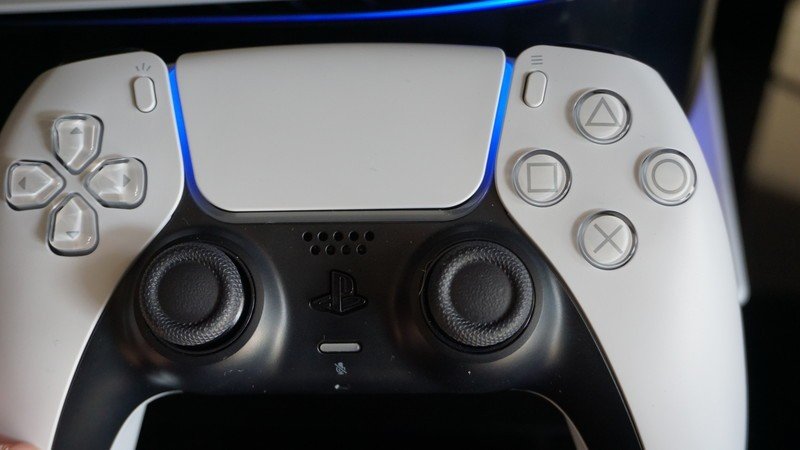
Assassin's Creed history: The full story (so far)
I'm a bit of an Assassin's Creed nut, so getting to detail the entire history of the series was a pleasure. People scorn at the word "lore" in games, but it happens to be my favorite part about the Assassin's Creed universe. Breaking down the plots of several main entries — and the modern-day story that ties it all together — was no easy task, and I'm proud of how the article turned out. It provides concise descriptions for the events that happened in each game and helps players understand important terminology they'll need to know.

Jeramy Johnson Staff Writer
Jeramy is proud to help Keep Austin Weird and loves hiking in the hill country of central Texas with a breakfast taco in each hand. When he's not writing about smart home gadgets and wearables, he's defending his relationship with his smart voice assistants to his family. You can follow him on Twitter at @jeramyutgw.
Sensing a new Tone for holistic wearables
Building on the successes of devices like the Apple Watch, Galaxy Watches, and even the Whoop, Fitbit and Amazon unveiled new fitness trackers this fall that purported to focus on so-called "holistic" health tracking. This meant measuring things like skin temperature and electrodermal activity, and even the tone of your voice.
While the initial editorials and reviews were quick to criticize how these features could be invasive, creepy, or inaccurate, I wanted to take the opposite approach. Specifically, I was curious if/how these devices (or future versions of them) might be useful in different kinds of behavioral therapies. It was a fun thought exercise, especially as a parent who had participated in ABA therapies with a child, and I was fortunate enough to be able to speak with a licensed therapist about these ideas.
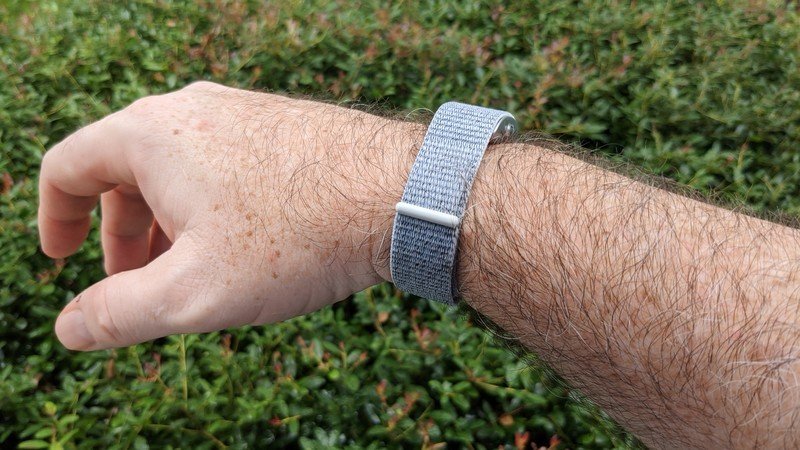
Fairphone 3 review: Sustainability requires sacrifice
With so many talented writers at AC, I don't often get the opportunity to review a new Android smartphone. However, I've long been intrigued by companies like Fairphone and Teracube that focus on sustainability, and so I leaped at the chance to get my hands on the Fairphone 3 around Earth Day this year.
This device's hardware can't compete with the top flagships or even most mid-rangers, but that's not really the point. What I liked about the phone is that it's perfect for Android diehards and tinkerers in that you can take it apart, repair it, replace the battery, and even flash different OS's on it like /e/OS.
I also admire how Fairphone is trying to show the mobile phone industry, and industry in general, that there is a path towards more sustainable and ethical production, hiring, and distribution. At one point in the article, I said something to the effect of "buy into a social movement and get a free smartphone," and I think that's the key takeaway here. I only wish that Fairphones were readily available for the North American market!

Jerry Hildenbrand Grumpy Old Man
I'm like that song stuck in your head that you don't know the words to or even the name, but you know it's really good. I've been around since the early days of computers and developed my first chunk of poorly written software using punch cards, and this somehow makes me extremely capable to write about Android. If it plugs into the wall, chances are I've taken it apart and tried to put it back together again. I like to crack jokes and tell tales of valor on Twitter sometimes, so say hey.
COVID-19 doesn't care if you believe stupid theories about 5G causing it
I hate disinformation and I hate being sick, so someone had to say it and that someone was me. Renowned scientists at the World Health Organization are trustworthy. The data from their tests is trustworthy. Your crazy friend from high school that tells you windmills cause cancer and 5G helps spread Coronavirus is not. 5G is an important step in the evolution of mobile broadband and conspiracy theories that hold back even a moment's worth of progress need to stop.
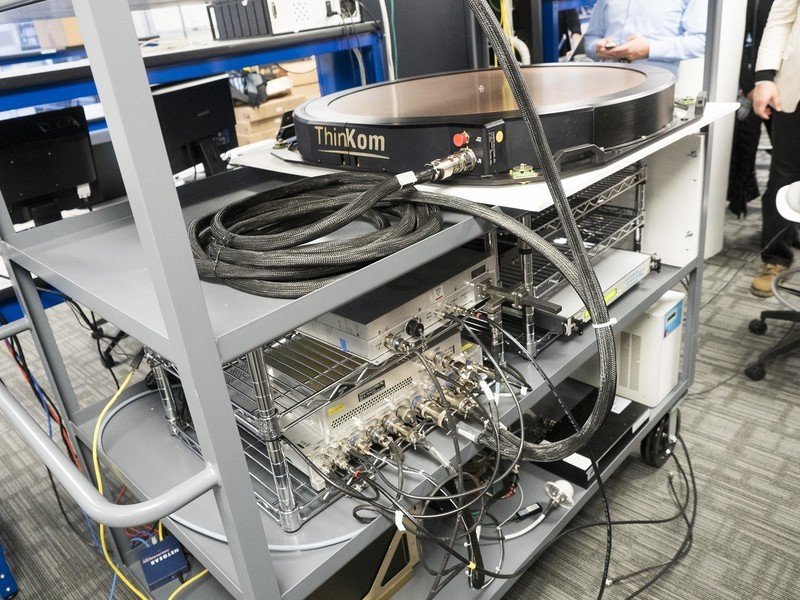
Google, it's now time to promise five years of Pixel updates
I didn't mind spending $400 every two years back when phones didn't cost a kidney. We were told that two years is how long a phone's hardware stays relevant and we accepted it for some strange reason, and every couple of years we did the thing and spent the money. Now, a cheap phone costs about $400 and a great phone costs about a thousand F^$>ng dollars and that's 100% insanity. If Google wants the Pixel lines of phones to compete, people need to get their money's worth from them. Supporting them for five years would go a long way towards that.

Joe Maring Senior Editor
Joe is Android Central's Senior Editor and has had a love for anything with a screen and CPU since he can remember. He's been talking/writing about Android in one form or another since 2012 and often does so while camping out at the nearest coffee shop (though not so much these days).
Android app development was already hard, but the pandemic made it brutal
2020 has been a year unlike any other. The ramifications that COVID-19 has had on all sectors of the world has been astounding to watch, including our little Android bubble. Back in June, a few of us at AC reached out to various app developers to hear their story on how the pandemic has impacted their workflow. Once all of our interviews were conducted, it was up to me to compile everything into a readable article.
Not only was it fascinating to learn about the new challenges COVID introduced to Android development teams, but it was also a reminder of the pre-existing struggles that these people already have to deal with on a daily basis.
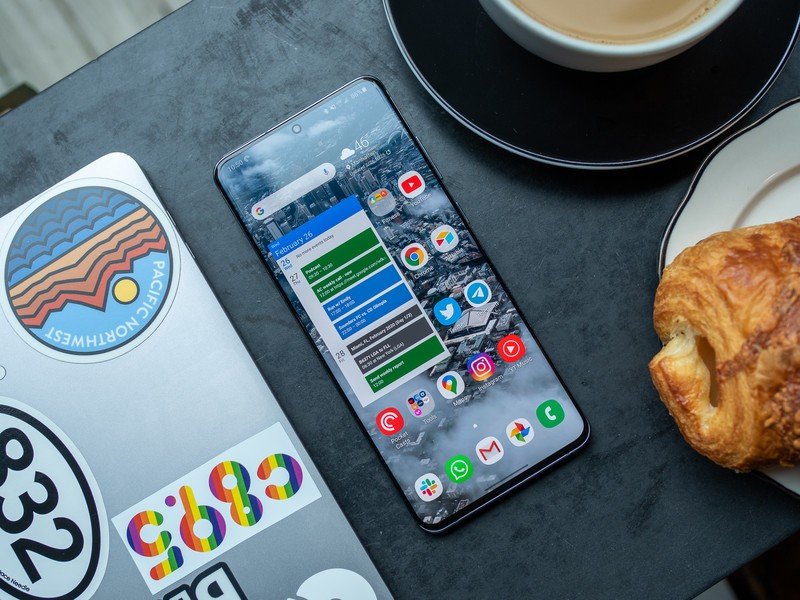
Motorola Edge review: Motorola's best phone since the Moto X
I've lost track of all the reviews I've written this year, but there is one that continues to stand out as one of the most enjoyable. Motorola sent me the Motorola Edge back in July, and to this day it holds true as one of my favorite Android phones of the year.
The Motorola Edge is a phone with a lot of problems. There's no wireless charging, its cameras aren't all that great, and it's plagued by Motorola's poor update policy. But in spite of all that, it was a phone that I had some of the most fun using in 2020. I've been a big Motorola fan ever since the first Moto X hit the scene back in 2013, so it was really exciting being able to spend some time with a flagship-like Motorola phone once again. It's been quite a few months since I shipped the Edge back to Motorola, and I find myself still missing it pretty regularly.
The best Android phones of the year
Oh boy, what a chore this thing was. I was tasked with completely overhauling our Best Android Phones article earlier this year, and I distinctly remember the days of back-to-back work it required. We expanded on the article considerably, redid all of the formatting, and it resulted in some pretty sore fingers once all was said and done.
As much of a pain in the butt as this was, I'm incredibly happy with the final product. I like to think we now have one of the most comprehensive Android roundups on the internet (if not the most comprehensive), and a large part of that is thanks to the brains behind the scenes that cooked up this new layout for some of our buyers guide articles. If you haven't given this a read in a while, I highly recommend checking it out.

Jordan Palmer Freelance Contributor
Jordan is a long-time gamer, big fan of Android, and a PC enthusiast. From the mid-90s on, he has constantly tinkered with computers and played every game he could get his hands on. Coming from a varied background which includes being with Android since the G1, he found his passion in writing about Google's mobile OS in 2016, which also launched his writing career not long after. You can find him on Twitter @jccpalmer if you want to chat.
Rounding up all of the best Android games
This was an easy choice for me since it's a project I work on weekly. There's not a whole lot to it, but the Best Android Games article underwent a redesign shortly after I started writing about mobile games for AC and now it looks just purty. Updating it on a weekly basis isn't all that difficult — I have a running list of games to pull from, unless something new and great comes along in the meantime. So in the later part of the week, I write about the game and send it over to our Managing Editor. Like I said, there's not a whole lot to it.
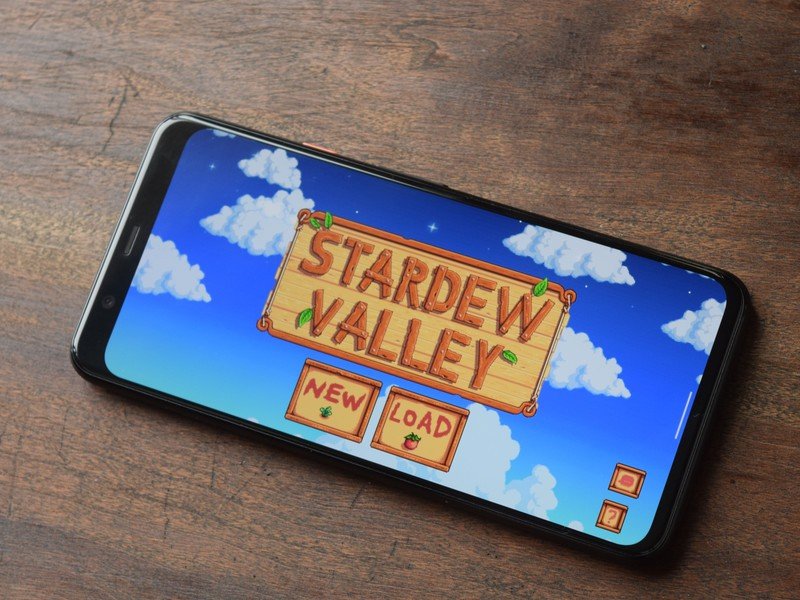
Revamping our Game of the Week section
Best Android Games may be my bread and butter as far as regular duties for Android Central, but the most fun part about my week is the Game of the Week, usually published on Mondays. I typically choose something that's gotten my attention recently and I spend 500-600 words telling everyone about it. It's like a mini-review meets an editorial and I love being able to highlight games both big and small that I think the AC readership should check out. Sometimes, it lines up with my selection for Best Android Games that week, but most of the time, it's a hidden gem I've found.
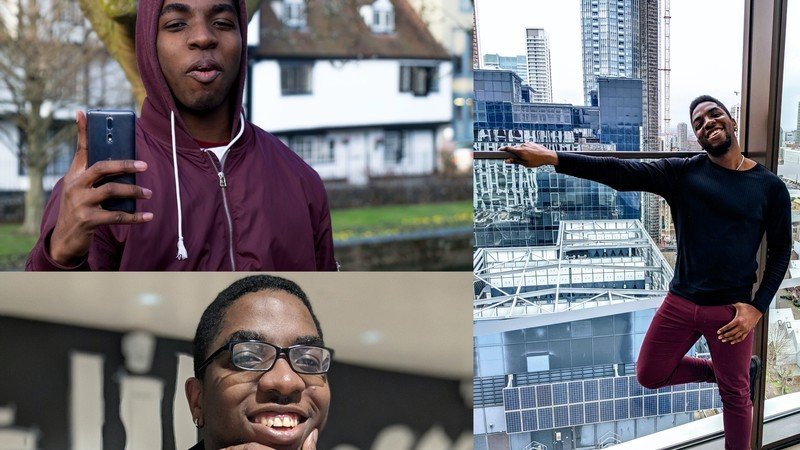
Michael Allison Freelance News Writer
Michael is another of Android Central's tall and handsome stable of news writers. He's generally interested in any and all consumer tech, with his current obsessions being Google's Pixel line and Chromebooks. When not writing on Android Central, he can often be found reading fiction, writing for fun, or working out. You can follow him on Twitter @mkeallison for reasons.
Google's Pixel 5 is missing the one thing it needs most: a reason to exist
Critiquing a product line you like and enjoy using is hard, but it's also done out a hope that it continues to exist in the future. As a fan of Google's hardware, I wasn't quite sold on the competitiveness of Google's products compared to every other phone out there. Even after its release, I still continue not to be convinced despite owning one of the newer models.
My goal in writing this piece was to answer a question, "Why do the 2020 Pixels exist?" I understood the answers others gave; it should be low-priced to compete, you don't need this much power, and so on. It's also my oddest piece timewise. I wrote it over a period of two months, rather than the much shorter runway my news articles get. I think that the gestation period allowed me to clarify my thoughts and reach an answer.
The Pixel line will survive as long as Google can bankroll it. But for it to thrive, Google needs a concrete pitch for the Pixel line. And it needs to work towards accomplishing that goal rather than seemingly reversing route every generation.
Here's how big tech companies are supporting the 2020 U.S. elections
Tech is important to our lives in more ways than we routinely think. As the U.S. elections came up, I developed an interest in how the U.S. tech companies would move to avoid a repeat of 2016 where they were manipulated by bad actors.
When it comes to politics, it's hard for these companies who strive at appearing apolitical to move one way or the other without being accused of supporting this party or that either tacitly or actively. Whether for optics or a genuine desire for a positive social impact, I feel it's a good thing that "Big Tech" chose to act. The question of if they did as much as they could have best left to another time.

Samuel Contreras Freelance Contributor
When Samuel is not writing about networking and carriers, he spends most of his time researching computer components and obsessing over what CPU goes into the ultimate Windows 98 computer. It's the Pentium 3.
Netgear Orbi AX6000 Wi-Fi 6 router review: The fastest mesh solution, period
The Orbi RBK852 was a constant stretch goal for those that wanted to upgrade to Wi-Fi 6 but also wanted the coverage advantage of a mesh. My time spent evaluating and resolving issues with this Orbi setup was fueled by my desire to construct the review I'd want to read. For every minor fault that I found with this Orbi system I found, there was a solution and it helped me to further cement the opinion that sometimes it's fine to buy something over the top.
If you haven't stopped by the review yet, the Orbi RBK852 from Netgear is one of the fastest mesh systems you can get anywhere. A fast 2,400Mbps dedicated mesh link keeps speed maxed out around the house, unlike value-oriented dual-band mesh systems. Not only that, but it has some of the best support for the fastest Wi-Fi 5 devices around which is an area many other systems let slide.
Not only that, but the wired performance was also great and ping times in the mesh were low and consistent enough to make this an easy recommendation even for gamers. It's nice to use and review a device where the worst thing you can say about it is that it's too expensive and may be overkill. When it comes to electronics, I prefer a bit of overkill.
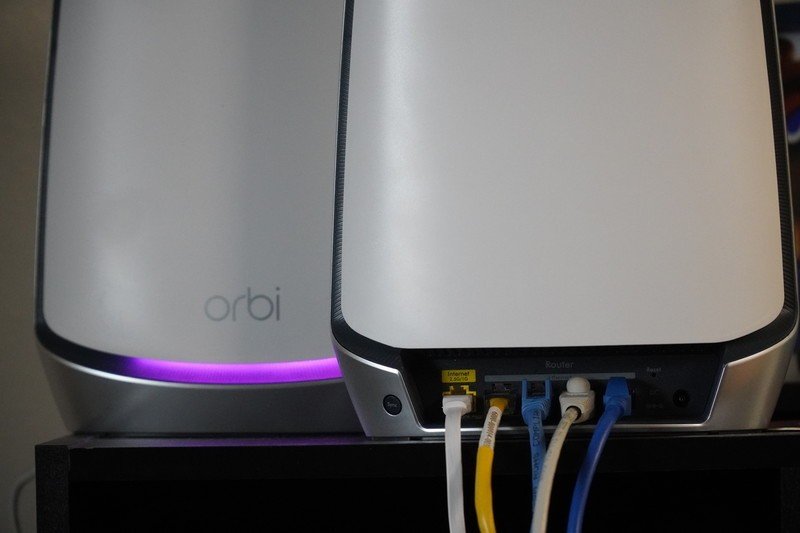

Samuel Tolbert Freelance Gaming Writer
Samuel is a freelance writer covering gaming news, specifically focusing on PlayStation on Android Central. You can find him on Twitter @SamuelTolbert.
The Last of Us Part 2's ending is a broken tale of nihilistic indulgence
The original game is a title dear to my heart, so when I finished The Last of Us Part 2 and found its narrative conflicted and messy, diving into it was something I was extremely passionate about. Thanks to some editing help, this is some of my strongest analysis ever and a piece I'm immensely proud of months later. It's also not too often that I go against the critical grain when it comes to blockbusters, which made for great self-examination in terms of the games and storytelling I enjoy.

Demon's Souls for PS5 review: A remake leads the way into the next generation
This is my first PS5 review for Android Central and one that, in spite of the size of the game, I turned around in a weekend. Being able to bring in coverage at the start of a new generation is something truly special and after over a year writing with the team at Android Central, I'm happy to be here writing these kinds of reviews.
Thanks for a great year!
We're all extremely proud of the work we're able to do at Android Central, but of course, none of it would be possible without you, the audience. Thanks as always for giving us such an incredible platform to write about the technologies that excite and impact us! You can be sure that we're bringing our A-game as we move into 2021, with plenty of great content already in the works.
Happy holidays!

Hayato was a product reviewer and video editor for Android Central.

